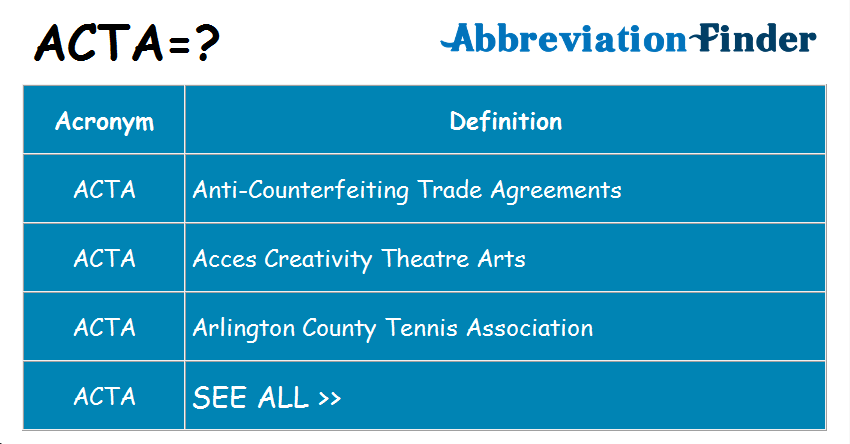What is ACTA?
ACTA is the acronym of Anti-Counterfeiting Trade Agreements, which stands for Commercial Anti-Counterfeiting Agreement, which is to prevent plagiarism and piracy on the Internet. ACTA is stricter than previous agreements, such as PIPA and SOPA, in addition to hampering the winding up of the agreement in the future.

The main objective of ACTA is to protect the intellectual property rights and rights that circulate on the Internet, thus combating online piracy, only among the countries participating in the agreement, including Poland, Australia, South Korea, Morocco, New Zealand, France, Italy, Japan, Singapore, Switzerland, and the United States. The objective of ACTA is to include penalties for “virtual crimes” and to restrict access to the Internet.
The agreement of ACTA is done under secrecy, which has generated a wave of protests, both on the Internet, and in the American Congress, which is responsible for approving the agreements. ACTA is much more powerful than the previous agreements, since when it is implemented, it will make it difficult for the Congress itself to dissolve if they want to go back.
The agreement is also heavily criticized because the contrary countries say the treaty was created only to favor business conglomerates, as well as to support and encourage the technology of the more developed countries, thus leaving the underdeveloped disadvantaged.
